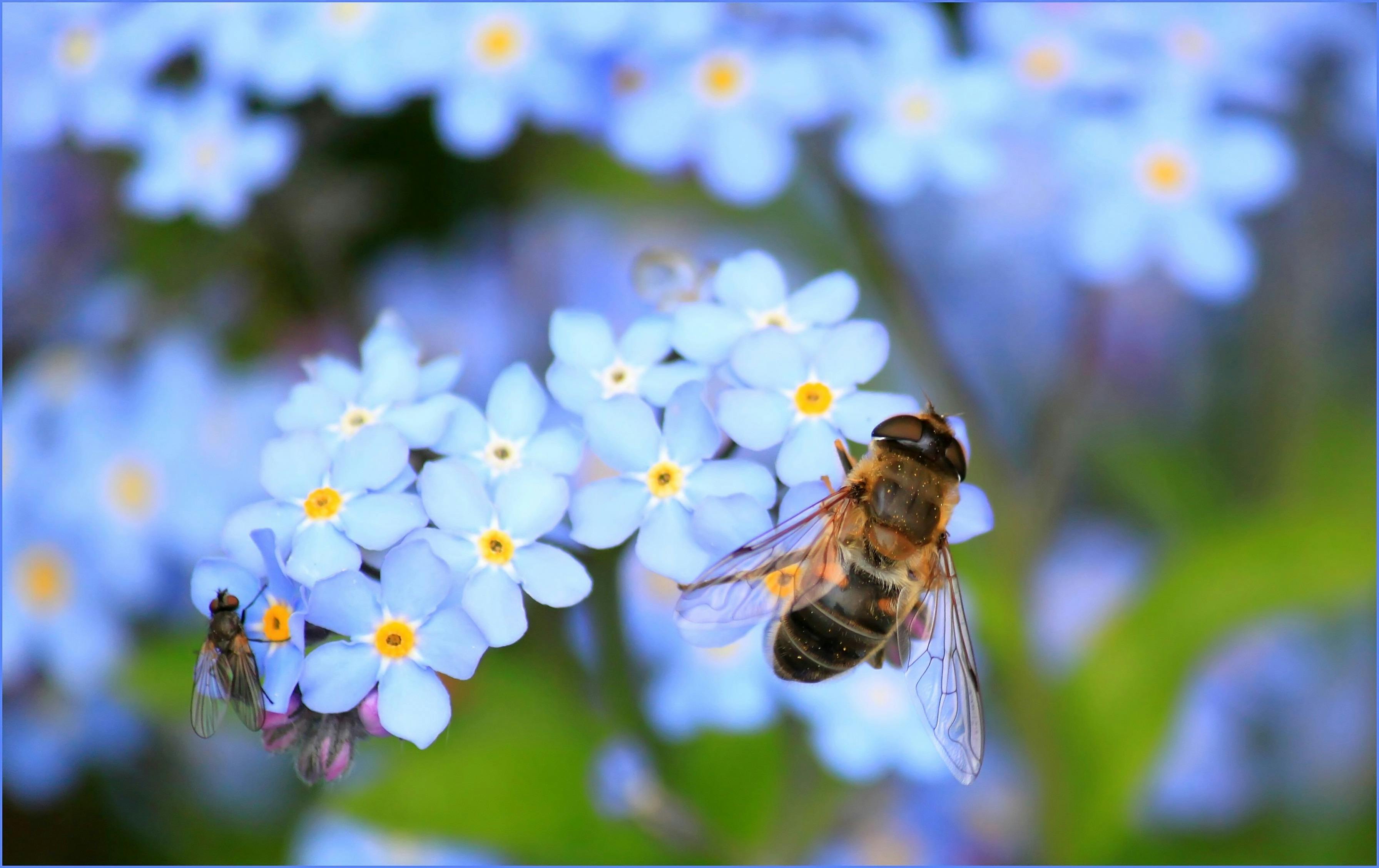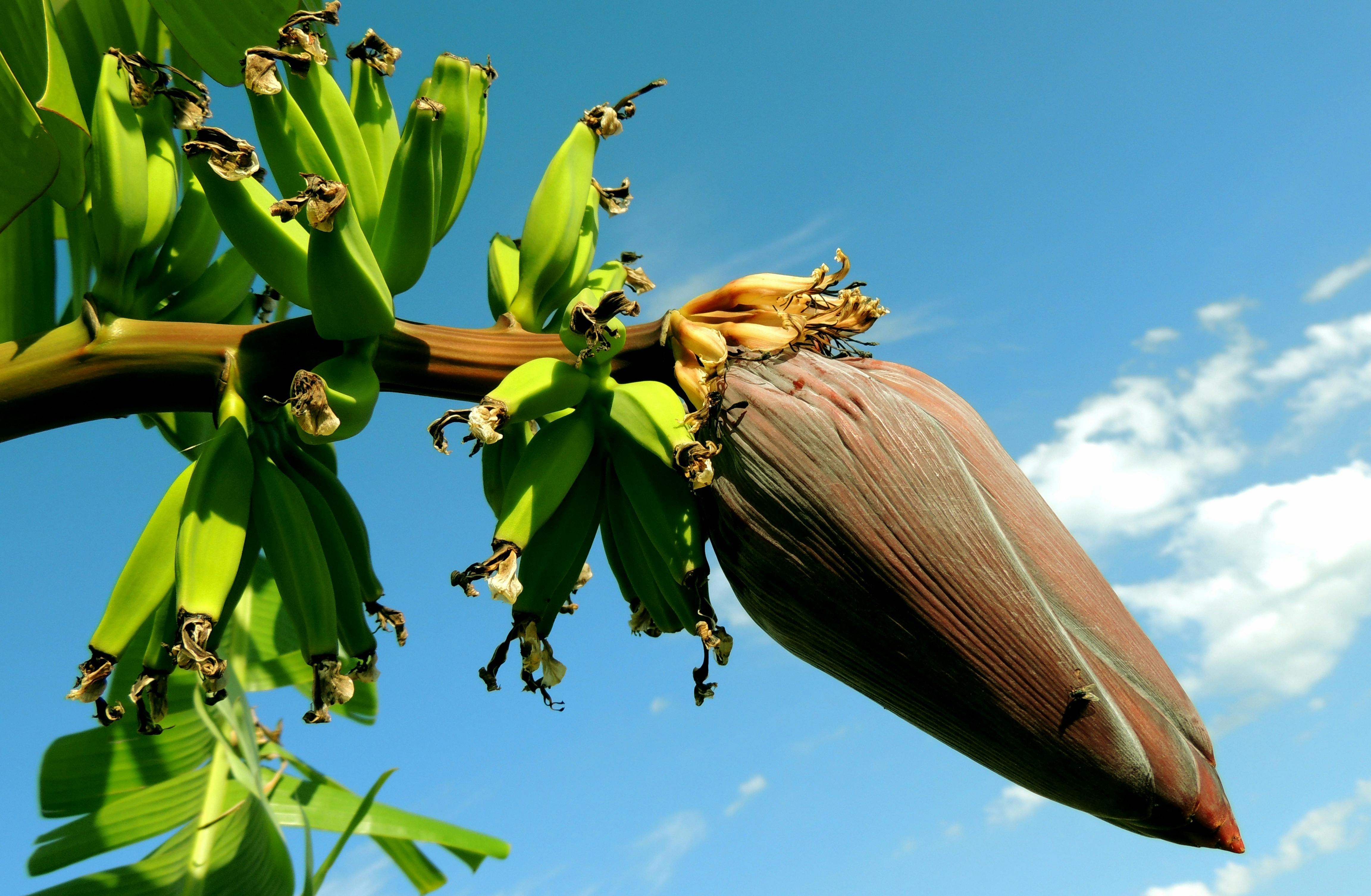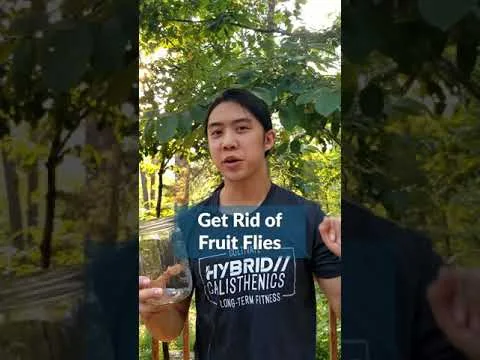Have you ever experienced a fruit fly buzzing around your head? Have you wondered why it seems to be following you? Fruit flies are actually attracted to the carbon dioxide we exhale, so when we move, they follow us. But why do fruit flies seem so interested in us? In this article, we will explore the reasons why a fruit fly might keep following you.Fruit flies are attracted to ripe or decaying fruit and vegetables, as well as sugary substances like syrup and alcohol. They are also attracted to garbage, drains, and other moist organic materials. Fruit flies are most active during the summer months when the temperature is warm.
How Do Fruit Flies Find Their Food?
Fruit flies are a common type of fly found in many parts of the world. They are attracted to sweet and decaying fruits and vegetables, making them a nuisance in homes and gardens. But how do they find their food?
Fruit flies rely on their senses to locate food sources. They have an incredibly keen sense of smell that can detect the presence of fermenting fruit from a distance. They also have well-developed eyesight that helps them spot potential food sources in their environment.
In addition to these senses, fruit flies also use pheromones to locate food sources. Pheromones are chemicals released by other fruit flies that can be detected by others of the same species. These pheromones act as a kind of “food map,” allowing fruit flies to track down potential food sources that have previously been located by other members of their species.
Lastly, fruit flies use a phenomenon known as “cross-attraction” to find food sources. This is when different species of insects are attracted to the same food source due to its smell or appearance. For example, if there is a ripe apple nearby, it may attract both fruit flies and wasps due to its sweetness or coloration.
By using their sense of smell, sight, pheromones, and cross-attraction, fruit flies are able to locate food sources quickly and efficiently. This helps ensure that they can get the nutrients they need for survival.
Are Fruit Flies Dangerous To Humans?
Fruit flies are generally considered harmless to humans, as they do not bite or sting. However, their presence in food can be a nuisance and is often an indication of unsanitary conditions. The main danger that fruit flies present is the potential to contaminate food with bacteria and other microorganisms.
Fruit flies lay eggs in decaying organic matter, such as overripe fruit and vegetables, as well as in drains and garbage cans. The larvae then feed on the decaying organic matter and can transmit bacteria and other microorganisms from one food source to another. This can result in food contamination and spoilage, which can pose a health risk if consumed.
In addition to potentially contaminating food, fruit flies can also cause allergies in some people. Fruit fly saliva has been known to cause an allergic reaction when it comes into contact with human skin or eyes. Symptoms of an allergic reaction include itching, redness, swelling, and hives.
To protect against the potential risks posed by fruit flies, it is important to maintain cleanliness in the kitchen and throughout the home. Food should be covered at all times when not being consumed, garbage cans should be emptied regularly, drains should be kept clean and free of debris, and overripe fruits or vegetables should be discarded immediately. In addition, insecticides may be used to help control an infestation of fruit flies if necessary.
What Are The Benefits Of Having Fruit Flies Around?
Fruit flies are beneficial in many ways. They are important in the ecosystem as pollinators, providing essential services for plants. Fruit flies are also important decomposers, helping to break down organic matter and returning vital nutrients to the soil. In addition, they provide a food source for other animals such as birds and lizards.
For humans, the presence of fruit flies can be seen as both helpful and a nuisance. On one hand, their presence can help to indicate when fruits and vegetables have gone bad and need to be thrown out, reducing the risk of food poisoning. On the other hand, their large numbers can be a nuisance when they start to infest homes or other buildings.
At a scientific level, fruit flies are also incredibly useful for researchers due to their short life cycle and genetic similarities with humans. Fruit fly research has provided insight into how genes control development and behavior in animals, with implications for human health. As such, they are an invaluable tool in medical research that could lead to treatments for diseases such as cancer and Alzheimer’s.
Overall, fruit flies can play an important role in both nature and science. Their presence in our environment should not be seen as just annoying pests – they provide valuable services that should be appreciated by all of us.
Getting Rid of Fruit Flies
Fruit flies are pesky little pests that tend to appear out of nowhere and can be incredibly annoying to deal with. Luckily, there are a few simple and effective ways to get rid of fruit flies and keep them from coming back.
The first step in getting rid of fruit flies is to locate the source. Fruit flies are attracted to ripe or decaying fruits and vegetables, as well as other organic materials such as spilled soda, beer, wine, or any other sugary liquid. Once you have located the source, it is important to remove it by throwing it away or cleaning it up.
The next step is to make sure that all fruits and vegetables are stored in airtight containers or the refrigerator. This will help prevent fruit flies from being attracted to your food. Additionally, make sure that all kitchen surfaces are cleaned regularly with an appropriate cleaner that is designed to kill bacteria and germs. This will help reduce the number of places where fruit flies can breed.
Lastly, you can use traps and sprays to get rid of any remaining fruit flies. Traps are available at most stores and work by luring the insects into a container where they can be trapped and disposed of safely. Sprays can also be used as a last resort if necessary, but should only be used in well-ventilated areas since they can release harmful fumes when used indoors.
By following these simple steps, you should be able to quickly get rid of fruit flies and keep them from coming back again. With a bit of effort and time spent on prevention, you can avoid having future infestations in your home or office space.

Keeping Fruit Flies Away
Fruit flies can be a nuisance, especially when they seem to follow you everywhere you go! There are some steps you can take to reduce your chances of a fruit fly infestation and keep the pesky critters away.
The first step is to make sure that all your fruit and vegetables are well-sealed when stored in the pantry or refrigerator. This will prevent fruit flies from being attracted to any residual odors emanating from these foods.
It’s also important to clean up any spills or juices that may have been spilled on countertops or other surfaces, as this can also attract fruit flies. Be sure to wash any dishes and utensils promptly after use.
If you find yourself with an infestation of fruit flies, try using traps such as apple cider vinegar or wine. The sweet odors attract the fruit flies, but they can’t escape the container easily. You can also use a small fan directed toward the area where the fruit flies are congregating, which will disrupt their flight patterns and make it more difficult for them to track you down.
Finally, if all else fails, contact your local pest control company for professional help in getting rid of these pesky critters once and for all!
Do All Fruits Attract Fruit Flies?
Yes, all fruits can attract fruit flies. These small flying insects are attracted to the sugars and other nutrients in ripe or decaying fruit. The smell of these fruits also attracts fruit flies as they can detect it from a distance.
Fruit flies lay their eggs on the surface of the fruit, and when these eggs hatch, they become larvae which feed on the sugars in the fruit. This can lead to a sudden increase in the numbers of fruit flies in a home or garden, as well as damage to the fruit itself.
When it comes to controlling a fruit fly infestation, it is important to remove any over-ripe or damaged pieces of fruit from your home or garden as quickly as possible. This will help reduce the number of breeding sites for the pests and stop them from spreading further. Additionally, you should make sure that all food waste is properly disposed of and that any trash cans are kept covered and sealed tightly so that there is no access for these pests.
If you notice a large number of fruit flies around your home or garden, it is best to contact a professional pest control service who can treat the area with specialized insecticides that are designed to target this type of pest. This will help to quickly eliminate any existing infestations and provide long-term protection against future invasions.
Cleanliness Help Keep Away Fruit Flies
Keeping a clean environment is one of the best ways to prevent fruit flies from taking over your home. Fruit flies are attracted to sugary substances, and if there is any spilled food or drink in the kitchen, they will be drawn to it. By thoroughly cleaning up any spills and keeping surfaces wiped down, you can help reduce the number of fruit flies in your home.
It is also important to keep food covered and sealed when possible. Open containers and uncovered food attract fruit flies, so make sure that all foods are sealed tightly and stored away from any potential entry points for these pests. This includes proper disposal of garbage as well; by ensuring that all garbage is taken out of the house regularly, you can help prevent an infestation from occurring.
Finally, it is important to identify where the fruit flies are coming from in order to prevent them from entering your home in the first place. This could be through open windows or doors, or even through cracks in walls or other areas around your home. Once identified, these areas should be sealed off with weatherstripping or caulking in order to keep them out for good.
By following these tips and ensuring your home remains clean and free of potential sources of attractants for fruit flies, you can help keep them away for good!

Conclusion
Fruit flies can be bothersome and even annoying, but they are an important part of the ecosystem. They play an important role in pollination and decomposition, which help to keep our environment healthy. While it may seem like a fruit fly is following you around, it is likely just looking for food and shelter. It is important to remember that all living creatures need to eat and find shelter in order to survive.
If you find that a fruit fly keeps following you, there are some steps you can take to deter them from entering your home. Keeping food sealed or stored away can help prevent the fruit fly from finding its way inside. Additionally, using deterrents like vinegar traps or essential oils can help keep the pests away.
In conclusion, understanding why a fruit fly might be following you can help you better deal with it. By knowing what attracts them and what deters them, you can have more control over your environment and keep these pesky pests away from your home.



